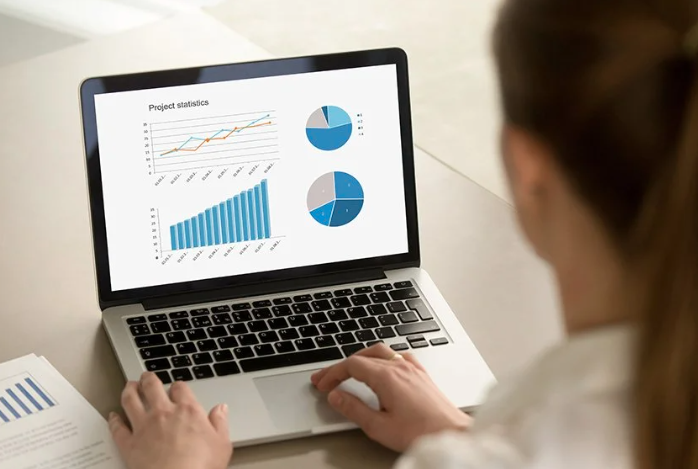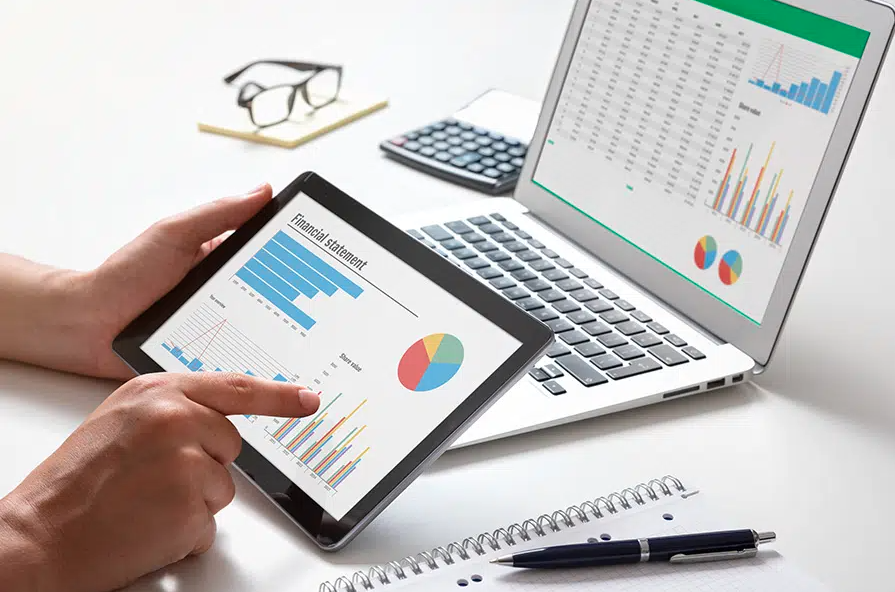Managing the financial aspects of a small business can be overwhelming, especially as it grows. The key to maintaining a healthy business is efficient and accurate financial management, which is where accounting software comes in. Choosing the best accounting software for small business can save you time, reduce errors, and provide you with valuable insights into your company’s financial health. In this guide, we’ll explore how to find the right accounting software that fits your needs and budget.
Guide To Finding The Right Accounting Software For Small Businesses

Why Small Businesses Need Accounting Software
For small business owners, the benefits of using accounting software are immense:
- Streamlined Financial Management: Accounting software allows you to easily track income and expenses, handle payroll, and generate financial reports.
- Time-Saving: Automating processes like invoicing, bill payments, and tax calculations frees up valuable time.
- Accuracy and Error Reduction: Manual bookkeeping is prone to errors. Accounting software reduces the risk of mistakes and provides accurate financial data.
- Better Decision-Making: With real-time financial reports, you can make informed decisions about budgeting, growth, and future investments.
- Tax Compliance: Good accounting software can help you stay compliant with tax laws and regulations by automatically generating tax reports and filing information.
Given these benefits, selecting the right accounting software is crucial for small businesses to remain efficient and grow sustainably.
Key Features to Look for in Accounting Software
Before selecting accounting software, consider the following features based on your business needs:
- Ease of Use: The software should be user-friendly and intuitive, especially if you don’t have a dedicated accountant.
- Invoicing and Billing: Look for software that allows you to easily create and send invoices, manage payments, and track overdue invoices.
- Expense Tracking: The ability to track business expenses, categorize them, and integrate with bank accounts will help you maintain accurate records.
- Payroll Management: If your business has employees, payroll functionality is essential. The software should allow you to calculate wages, taxes, and generate payroll reports.
- Tax Calculation: The software should help you calculate sales tax and other taxes automatically and help generate tax reports.
- Integration with Other Tools: Ensure the software integrates with other tools you use, such as payment processors, CRMs, and inventory management systems.
- Financial Reporting: The software should generate essential financial reports like profit and loss statements, balance sheets, and cash flow reports.
- Mobile Access: A mobile-friendly accounting software or app can help you manage your finances on the go.
How to Choose the Best Accounting Software for Small Business
When evaluating which best accounting software for small business is right for you, consider the following steps:
1. Understand Your Needs
Start by assessing your business’s specific requirements. Do you need just basic bookkeeping, or do you need advanced features like payroll, inventory management, and tax support? The complexity of your business operations will determine the features you require.
2. Set a Budget
Pricing for accounting software varies widely. Basic software may cost as little as $10–$30 per month, while more advanced systems can cost $100 per month or more. Keep in mind that while free software options exist, they may lack the features necessary for a growing business.
3. Consider Scalability
As your business grows, you may need more features. Choose accounting software that can scale with your business without requiring a complete switch down the line.
4. Look for Customer Support
Even the most user-friendly accounting software may have occasional issues or questions. Choose software that offers reliable customer support, ideally with 24/7 access, chat options, and detailed knowledge bases.
5. Check for Integrations
If your business uses other tools (like CRM software or inventory management), ensure that the accounting software integrates with them seamlessly.
6. Evaluate Security Features
Financial data is sensitive, and security is a top priority. Look for software that provides encryption, multi-factor authentication, and regular backups.
Popular Accounting Software for Small Businesses
There are numerous accounting software options available for small businesses. Below is a comparison of some of the most popular options:
| Software | Price | Best For | Key Features |
|---|---|---|---|
| QuickBooks Online | $25–$150 per month | Businesses of all sizes | Invoicing, payroll, tax calculation, financial reporting |
| Xero | $13–$70 per month | Growing businesses | Cloud-based, invoicing, multi-currency support, and inventory management |
| FreshBooks | $15–$50 per month | Freelancers and small businesses | Time tracking, invoicing, expenses, and client management |
| Wave | Free (with paid add-ons) | Small businesses with simple needs | Invoicing, accounting, payroll, and receipt scanning |
| Zoho Books | $15–$60 per month | Small to medium businesses | GST-compliant, multi-currency support, invoicing, and expense tracking |
| Sage 50cloud | $50–$150 per month | Established businesses needing more advanced features | Accounting, inventory, job costing, and project management |
How to Make the Most of Accounting Software
Once you've chosen the right software, here are some tips to maximize its effectiveness:
- Automate Routine Tasks: Set up recurring invoices, automatic bill payments, and transaction categorization to save time.
- Keep Your Data Updated: Regularly input transactions, reconcile accounts, and update records to maintain accurate financial data.
- Regularly Review Reports: Generate financial reports to get insights into your business’s health and make data-driven decisions.
- Train Your Team: If you have employees involved in the accounting process, ensure they’re properly trained to use the software effectively.
Conclusion
Choosing the best accounting software for small business can be a game-changer, providing you with the tools you need to manage your finances efficiently, make informed decisions, and ensure the long-term success of your business. By considering your specific needs, budget, and future growth potential, you can find a software solution that helps streamline your accounting processes. Whether you're looking for basic bookkeeping or comprehensive financial management tools, the right accounting software will save you time, reduce stress, and improve the accuracy of your financial reporting.
Explore

Discover the Best Accounting Software for Small Businesses in the UK

The Best Accounting Software for Small Businesses in 2025

Guide To Finding The Right Warehouse Management Systems For Small Businesses

Guide To Finding The Right Health Insurance For Small Business

Guide To Choosing The Right Payroll Services For Small Businesses

Choosing the Right Fit: Top Payroll Software Solutions for Small Businesses in 2025

Guide To Finding The Right Mesothelioma Attorney

Guide To Finding The Right Moving Company And Services
